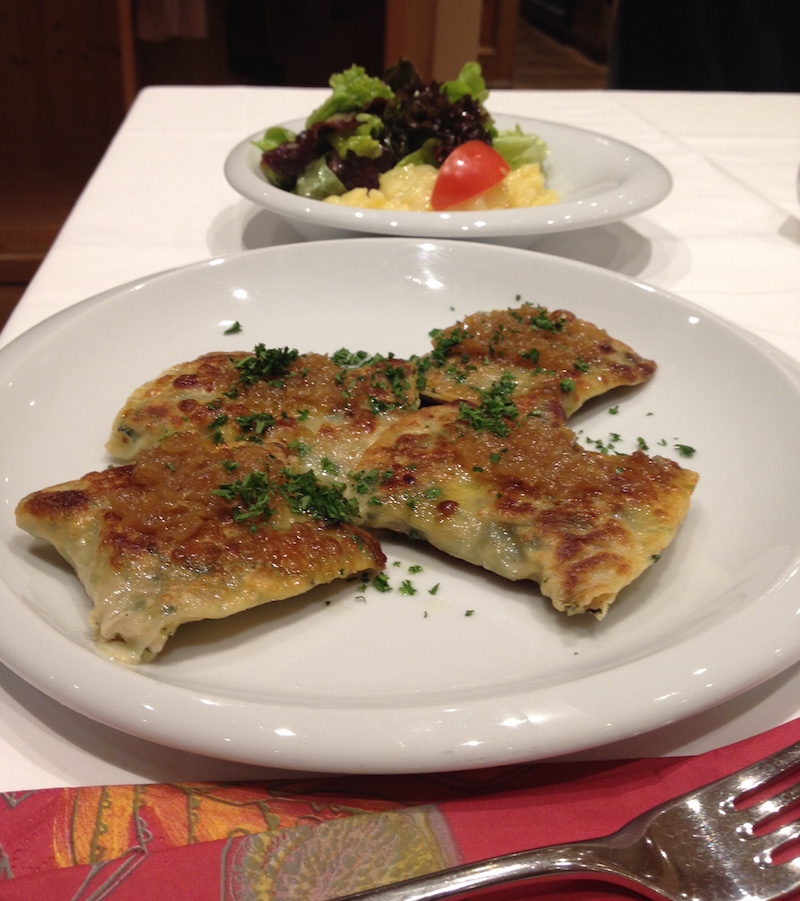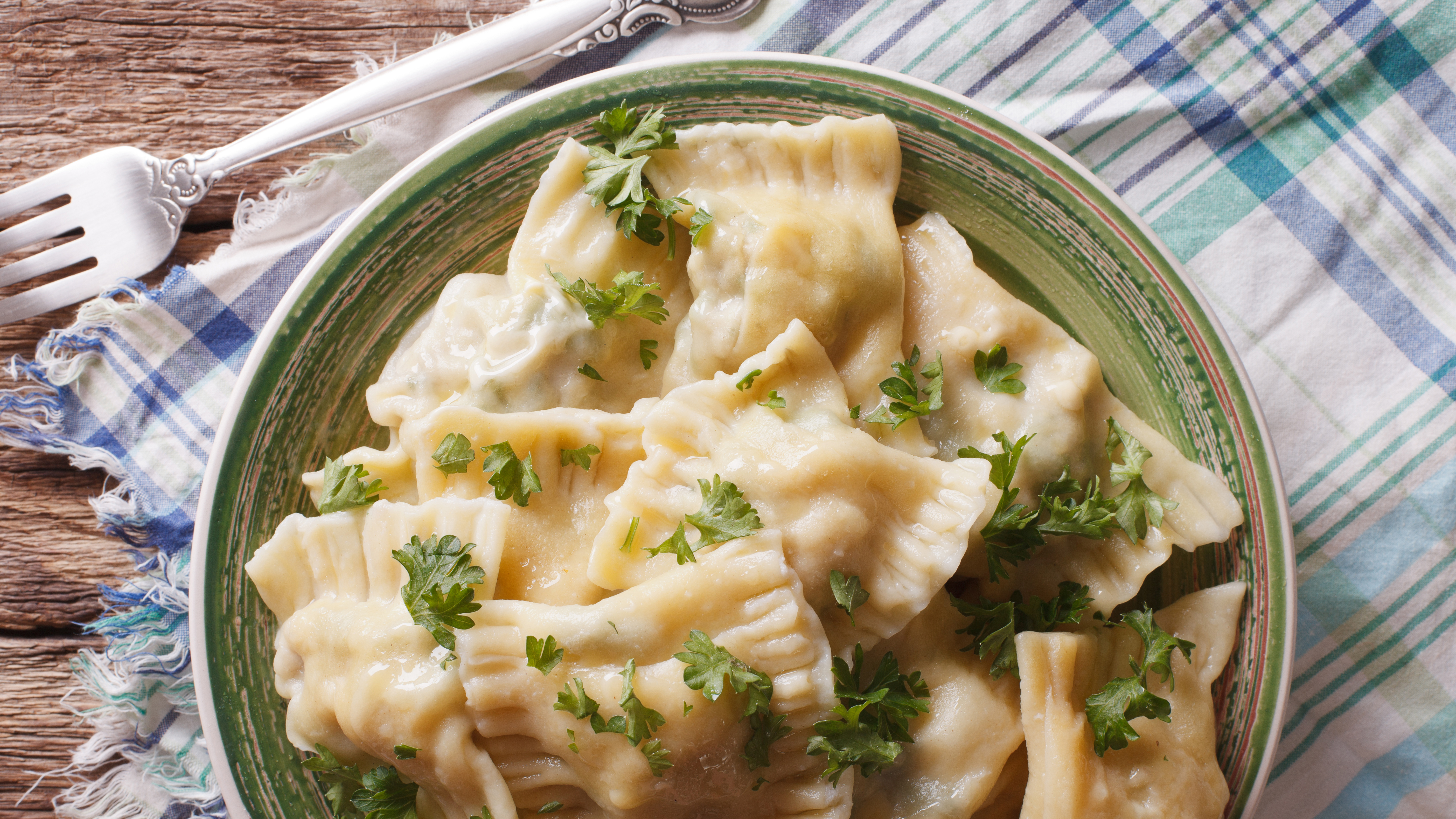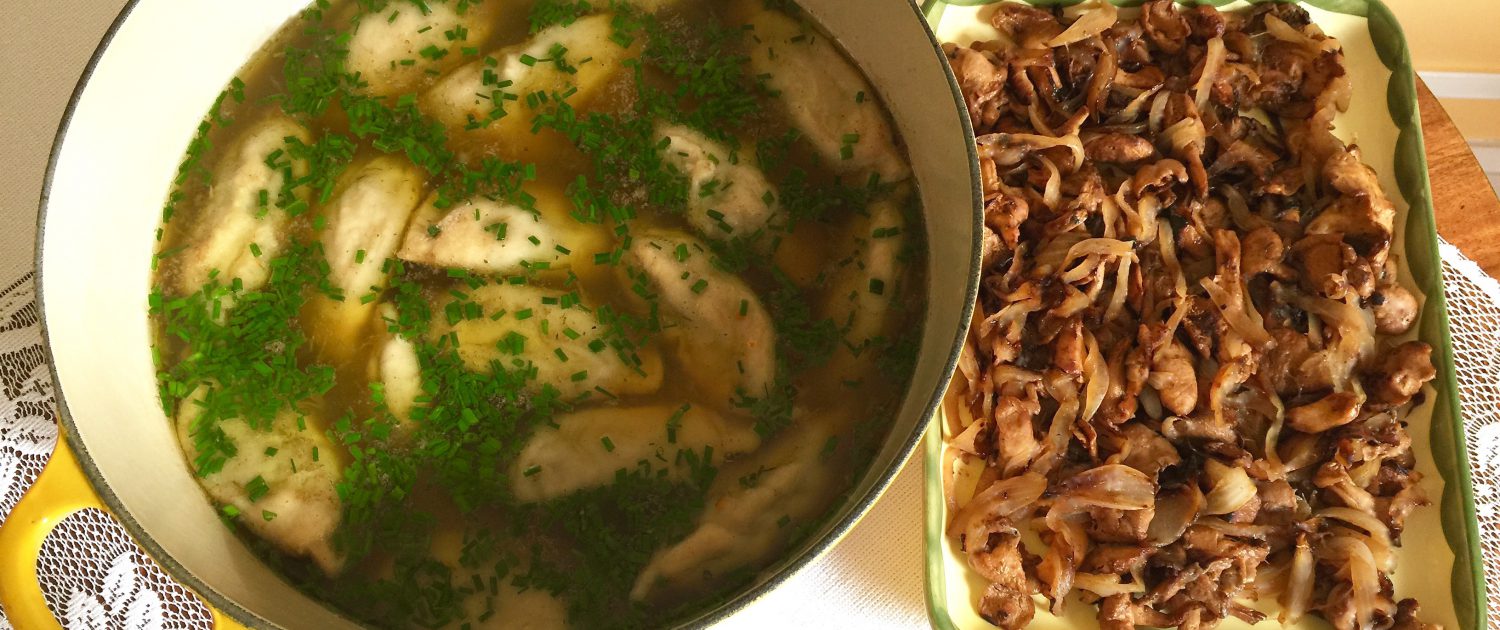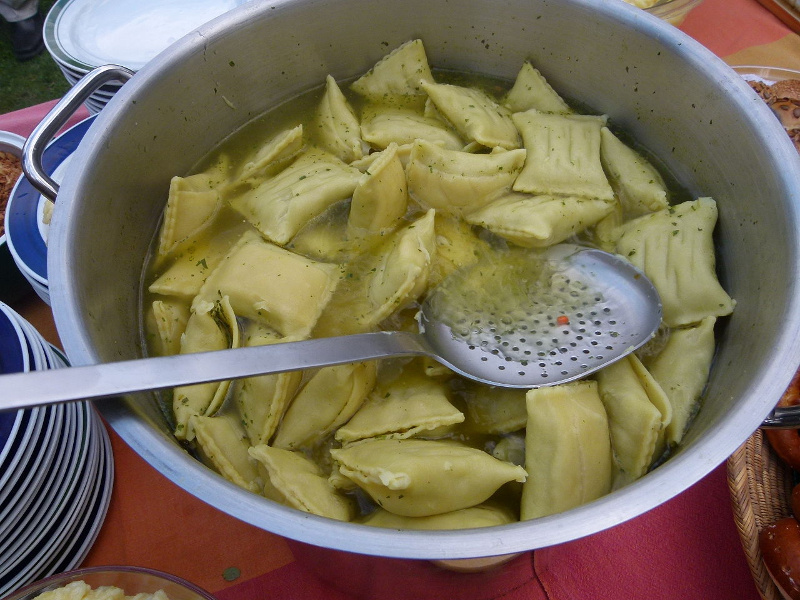Maultaschen
maultasche
Maultaschen , lit. 'mouth bags') are a kind of large meat-filled dumpling in Swabian cuisine. They consist of sheets of pasta dough filled with minced meat, smoked meat, spinach, bread crumbs and onions and flavored with various herbs and spices (e.g. pepper, parsley and nutmeg). Maultaschen are typically 8–12 centimetres (3–4+1⁄2 inches) across. They are square or rectangular in shape. On 22 October 2009, the European Union recognized Maultaschen (Schwäbische Maultaschen or Schwäbische Suppenmaultaschen) as a 'Protected Geographical Indication (PGI)' and remarked that the dish is significant to the cultural heritage of Baden-Württemberg. This measure provides protection to the integrity of the dish, mandating that genuine Maultaschen are only produced in Swabia, a historical region that was incorporated into the modern German states of Baden-Württemberg and Bavaria. In Swabia, Maultaschen are the traditional dish associated with the Lenten commemoration of Maundy Thursday and Good Friday. During Lent, Catholics and other Christians are encouraged to refrain from eating meat. However, Maultaschen are humorously associated with these days because the meat in the dish is concealed under the pasta dough and cannot be seen by God. Among the anecdotal stories regarding the origin of the dish, one claims that Maultaschen were created by the Cistercian monks of Maulbronn Abbey for that purpose. A Swabian German nickname for the dish, Herrgottsbescheißerle, means "God-cheaters".[citation needed]
Source: Wikipedia
Recipes

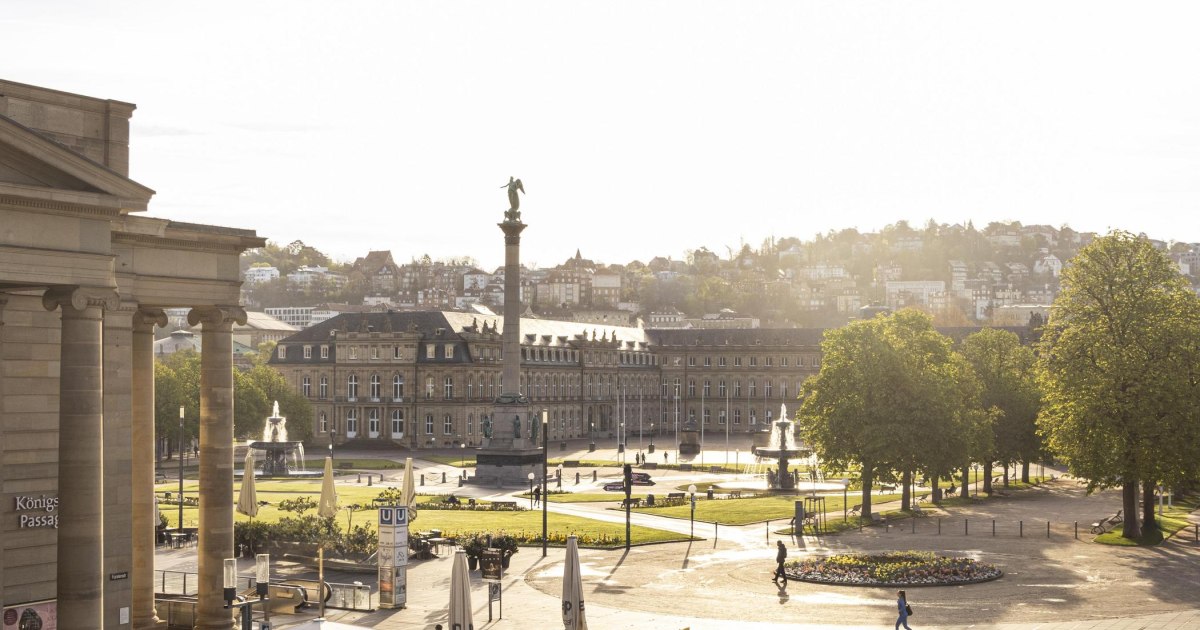
:max_bytes(150000):strip_icc()/ravioli-german-style-recipe-1447077-hero-01-908b3bdb652b469a8970d76b310c3630.jpg)
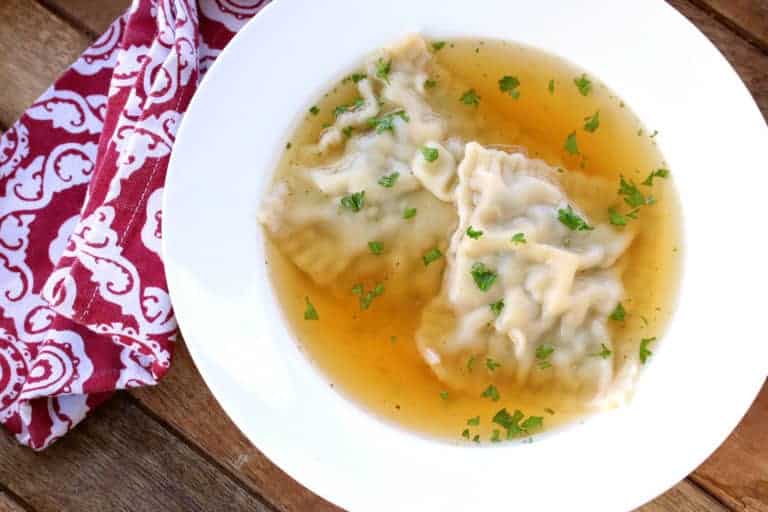
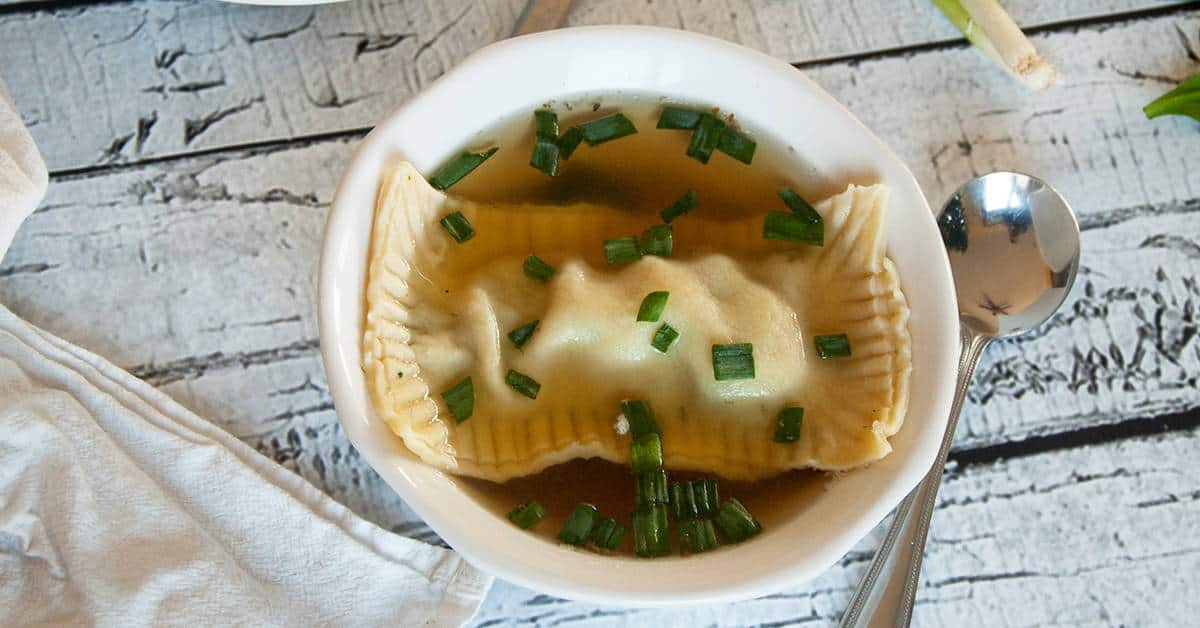
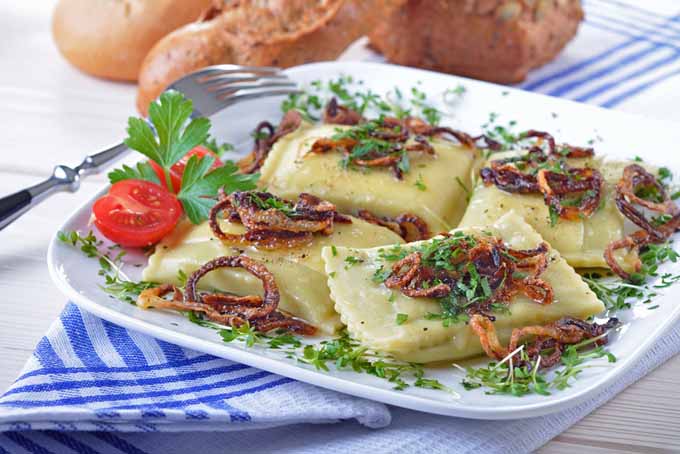
/images.kitchenstories.io/recipeImages/R1190-photo-final.jpg)


